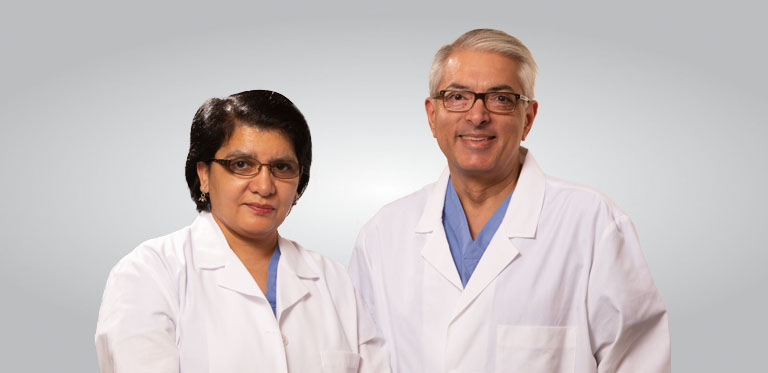Qurashia Manjoo, MD
Jasvinder S. Sandhu, MD
Heritage Valley VeinCare focuses on the diagnosis and treatment of medically significant disorders of the venous circulation. It is estimated that at least 20 to 25 million Americans have symptomatic varicose veins. Vein disorders occur as a result of several factors including heredity, pregnancy, the aging process, trauma, excessive weight, and prolonged sitting or standing.
Normal veins carry blood away from the extremity back toward the heart. Valves inside them keep blood flowing in the proper direction. When these valves are damaged, the effect of gravity causes the blood to reflux (flow backwards) in the vein. This results in congestion and pooling in the veins of the legs, ankles, and feet. The resultant increased venous pressure causes susceptible veins to stretch and expand, forming visible large varicose veins, often in conjunction with smaller spider veins. Over time, complications of swelling, skin changes and ulceration become more likely if venous disease is left unchecked.
Symptoms of venous disease include pain, burning, cramping, heaviness, itching and swelling. Not all diseased veins are visibly on the surface of the skin. A detailed ultrasound examination is necessary. Treatment of symptomatic varicose veins is covered by most health insurance plans.
Heritage Valley VeinCare locations are operated by Board-certified physicians who are part of the Heritage Valley Heart and Vascular Center. An ultrasound test is performed and patients undergo a comprehensive examination by the doctor who then formulates an individualized treatment plan for their particular condition. Treatment for extensive disease usually requires more than one session.
